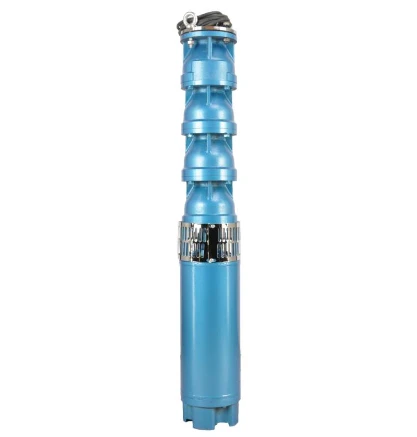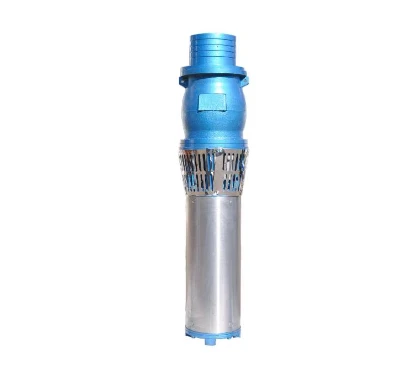Nov . 23, 2024 12:05 Back to list
3 phase water pump
Understanding 3-Phase Water Pumps Efficiency and Applications
Water pumps play a vital role in numerous industrial, agricultural, and residential applications. Among the various types of water pumps available, 3-phase water pumps stand out for their efficiency and reliability. This article explores the fundamental aspects of 3-phase water pumps, including their operation, advantages, applications, and considerations for selection.
What is a 3-Phase Water Pump?
A 3-phase water pump is a type of electric water pump that operates using a three-phase electrical power supply. Unlike single-phase pumps that rely on a single alternating current (AC) voltage, 3-phase pumps utilize three currents that are phase-shifted by 120 degrees. This design allows for more efficient energy consumption and smoother operation, making it particularly suitable for heavy-duty applications.
How Do 3-Phase Water Pumps Work?
The operation of a 3-phase water pump is based on the principles of electromagnetism. In a typical setup, an electric motor drives the pump. When the motor receives electrical energy from a 3-phase power source, it creates a rotating magnetic field, which induces mechanical motion. This mechanical energy is then transferred to the pump impeller, which effectively moves the water.
One of the most significant benefits of using a 3-phase system is the improved power factor and reduced energy loss. This is especially important in industrial settings where high power consumption is common. Additionally, 3-phase water pumps often have a higher starting torque than their single-phase counterparts, which means they can handle heavier loads and operate under more demanding conditions.
Advantages of 3-Phase Water Pumps
1. Higher Efficiency 3-phase pumps are known for their greater efficiency, leading to reduced operational costs, especially when running continuously. They convert electrical energy to mechanical energy more effectively than single-phase systems.
2. Smoother Operation The three-phase power supply results in a more balanced load on the motor, minimizing vibrations and noise. This smooth operation extends the lifespan of both the pump and the motor.
3. Improved Performance These pumps can handle larger volumes of water and are better suited for high-pressure applications. Their ability to provide consistent power makes them ideal for situations requiring thorough and reliable water movement.
4. Reduced Size Given their efficiency, 3-phase water pumps can often be smaller and lighter compared to single-phase models with similar capacities, saving on space and installation costs.
5. Longer Lifespan The robust construction and reliable operation contribute to a longer lifespan for 3-phase water pumps, making them a cost-effective solution over time.
3 phase water pump

Applications of 3-Phase Water Pumps
The versatility of 3-phase water pumps allows them to be utilized in a wide range of applications
- Industrial Settings They are commonly used in factories for processes requiring significant water flow, such as cooling systems, fire suppression, and industrial cleaning.
- Agriculture 3-phase water pumps are ideal for irrigation systems, where large volumes of water need to be moved efficiently across extensive fields.
- Municipal Water Supply These pumps help in municipal water distribution systems, ensuring that communities receive adequate water pressure and supply consistently.
- Wastewater Management They play a crucial role in wastewater treatment facilities, helping to transport wastewater efficiently and effectively.
Considerations for Selecting a 3-Phase Water Pump
When choosing a 3-phase water pump, several factors should be considered
1. Flow Rate and Head Requirement Determine the specific flow rate and head (the height to which water needs to be lifted) required for your application.
2. Power Supply Availability Ensure that a suitable 3-phase electrical supply is available at the installation site.
3. Material Compatibility Consider the materials of construction of the pump, especially if the water contains chemicals or other substances that could cause corrosion or wear.
4. Maintenance Needs Evaluate the ease of maintenance and availability of replacement parts, as regular maintenance is crucial for optimal performance and longevity.
In conclusion, 3-phase water pumps offer enhanced efficiency, performance, and durability compared to their single-phase counterparts. Understanding their operation and advantages can help users make informed decisions, ensuring they choose the right pump for their specific needs. Whether for industrial, agricultural, or municipal applications, 3-phase water pumps are essential tools in managing water effectively and efficiently.
-
Submersible Well Pumps Buying Guide
NewsMay.14,2025
-
Submersible Sump, Dirty Water, Borehole Pumps Demystified
NewsMay.14,2025
-
Stainless Steel Submersible Pumps Superior Performance
NewsMay.14,2025
-
High Flow Submersible Well Pumps Essential Features
NewsMay.14,2025
-
Choosing the Best Stainless Well Pump
NewsMay.14,2025
-
A Comparison of Submersible Pumps Filled with Water and Oil
NewsMay.14,2025
-
 Submersible Well Pumps Buying GuideReliable access to clean water is fundamental for residential, agricultural, and commercial operations, making the selection of an appropriate well pump system one of the most important infrastructure decisions.Detail
Submersible Well Pumps Buying GuideReliable access to clean water is fundamental for residential, agricultural, and commercial operations, making the selection of an appropriate well pump system one of the most important infrastructure decisions.Detail -
 Submersible Sump, Dirty Water, Borehole Pumps DemystifiedThe world of water management has undergone a technological revolution, with advanced pumping systems now offering unprecedented efficiency and reliability across diverse applications.Detail
Submersible Sump, Dirty Water, Borehole Pumps DemystifiedThe world of water management has undergone a technological revolution, with advanced pumping systems now offering unprecedented efficiency and reliability across diverse applications.Detail -
 Stainless Steel Submersible Pumps Superior PerformanceModern water extraction and fluid handling systems demand equipment capable of withstanding harsh environments while maintaining peak efficiency.Detail
Stainless Steel Submersible Pumps Superior PerformanceModern water extraction and fluid handling systems demand equipment capable of withstanding harsh environments while maintaining peak efficiency.Detail
